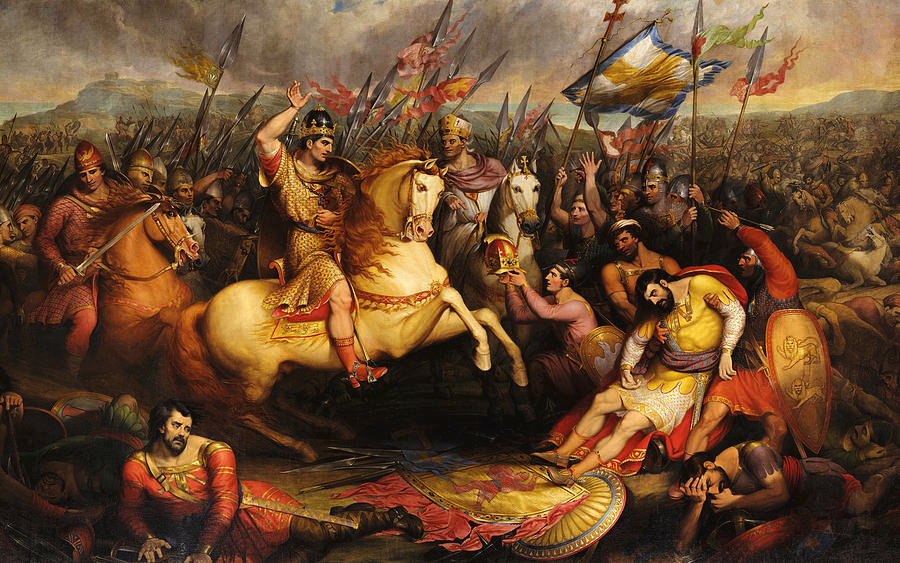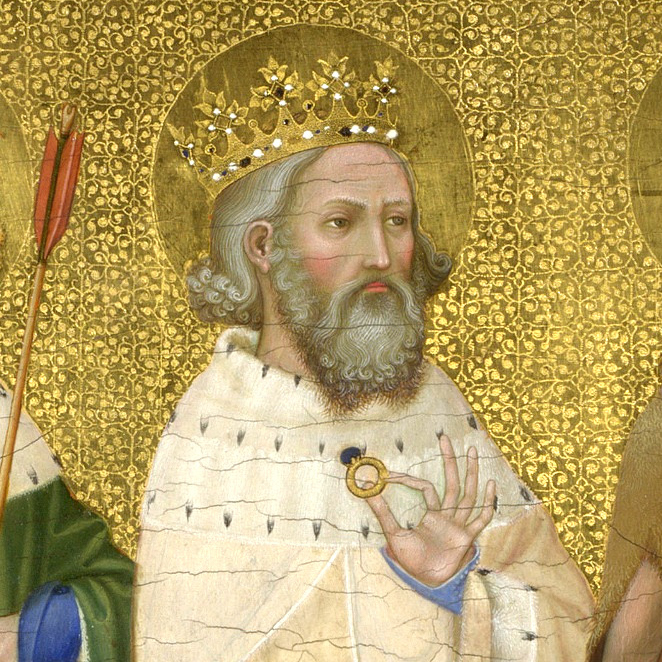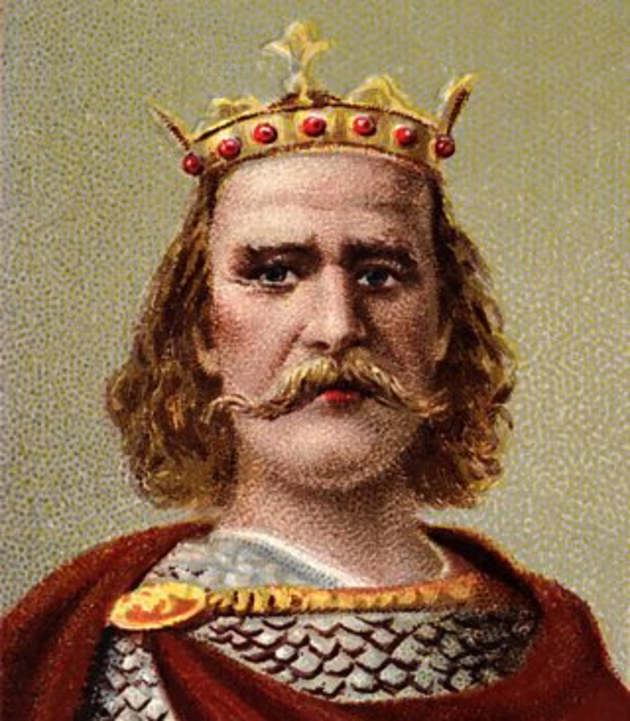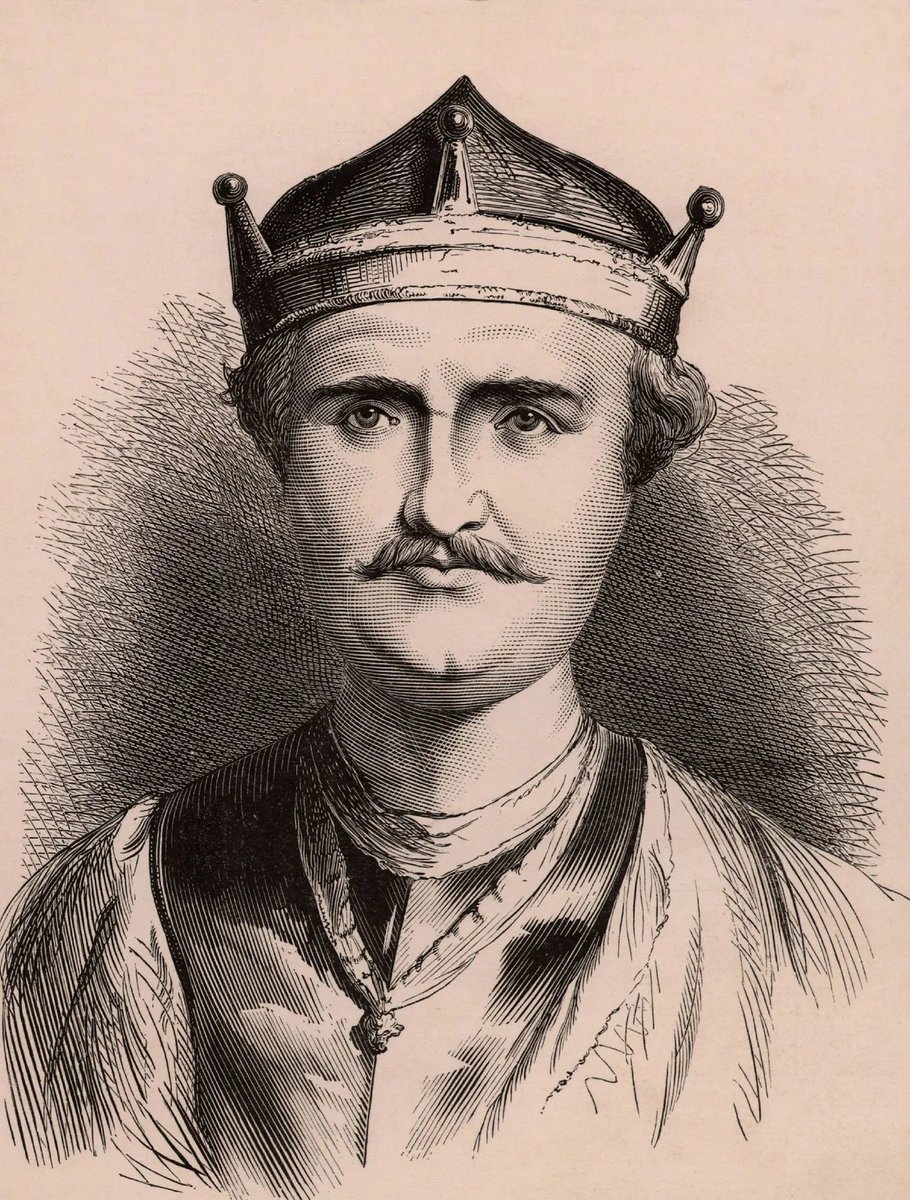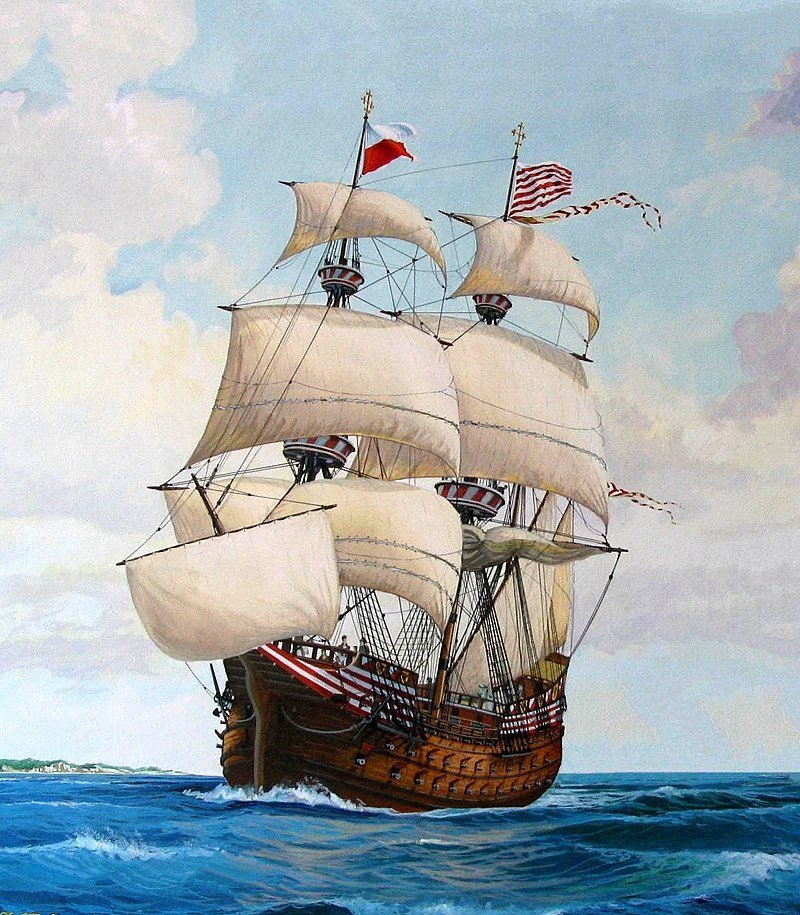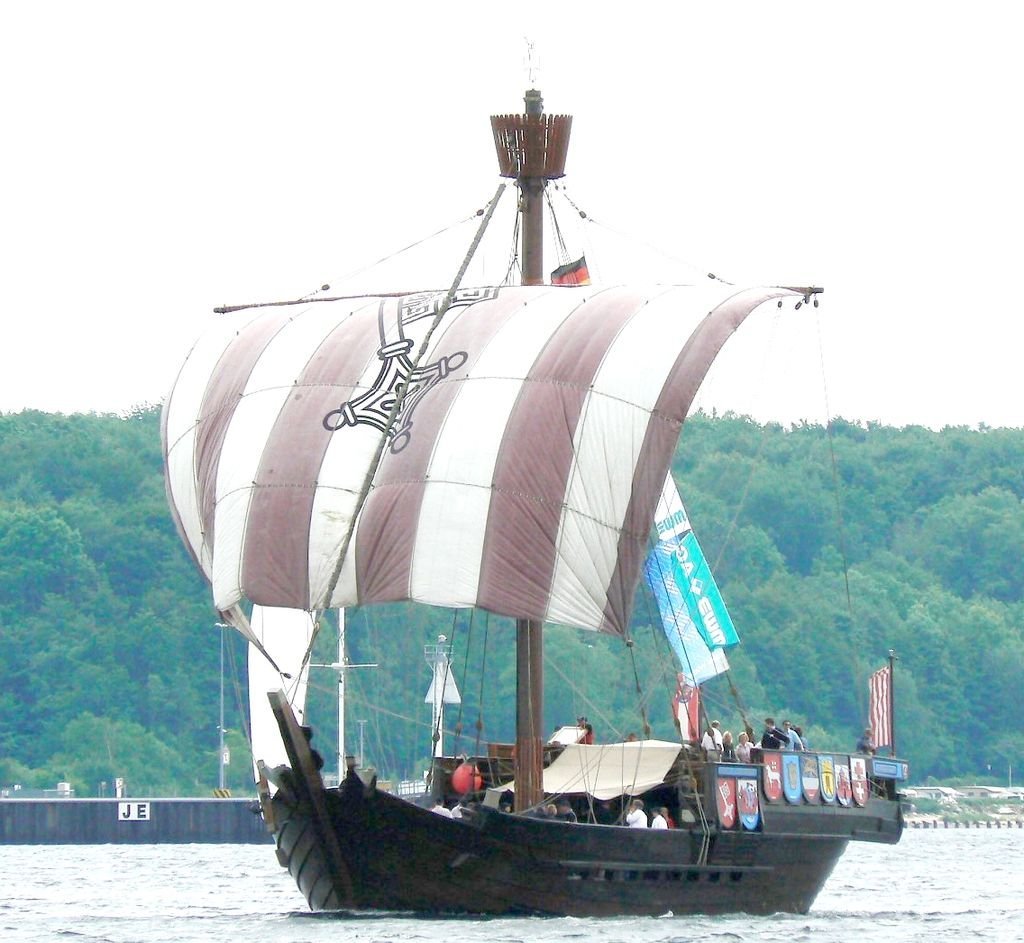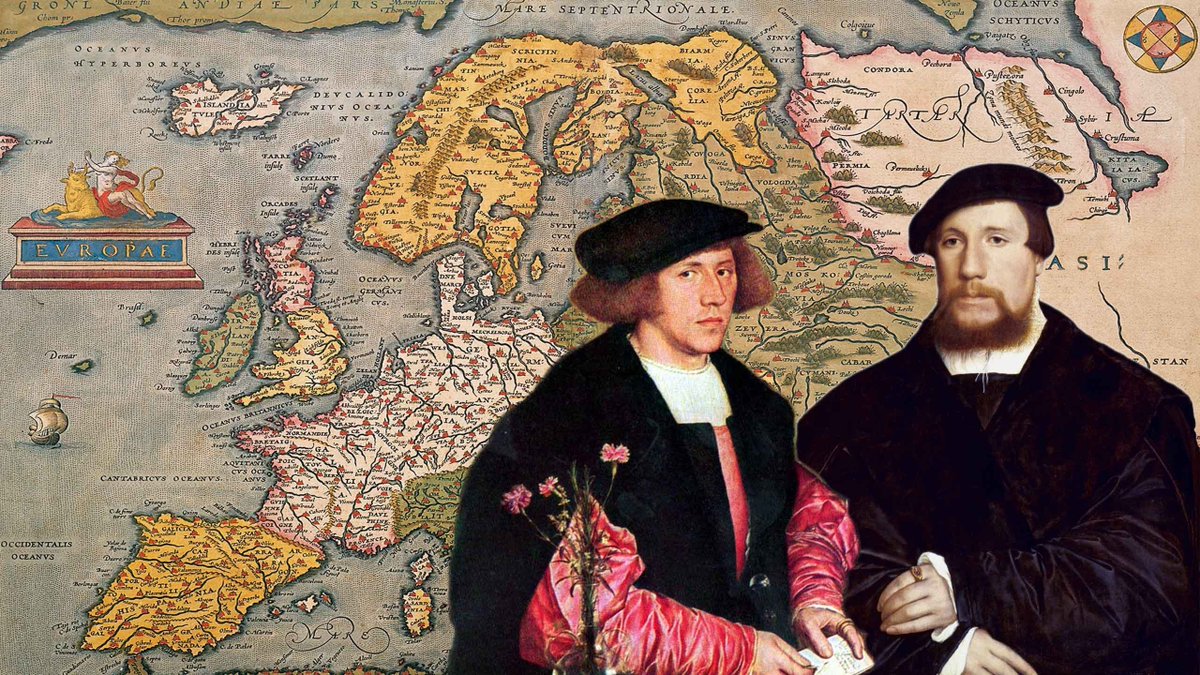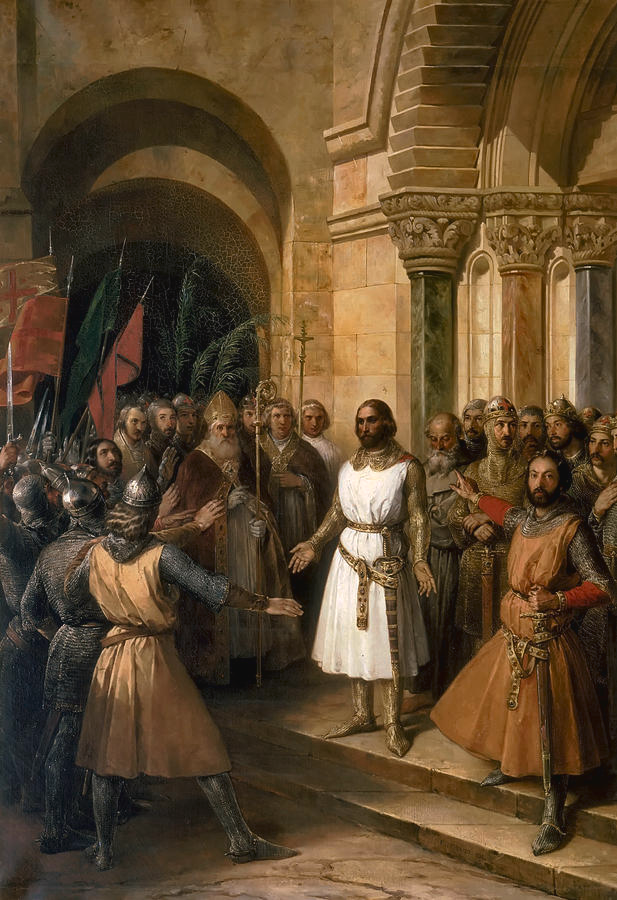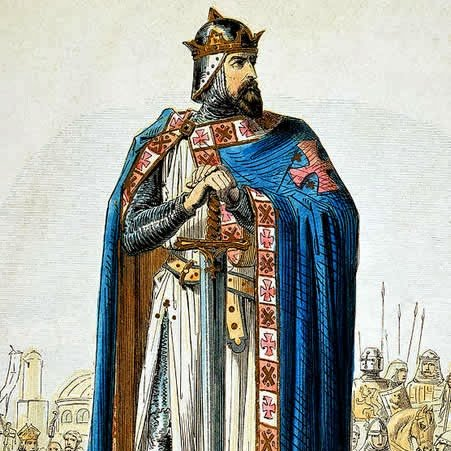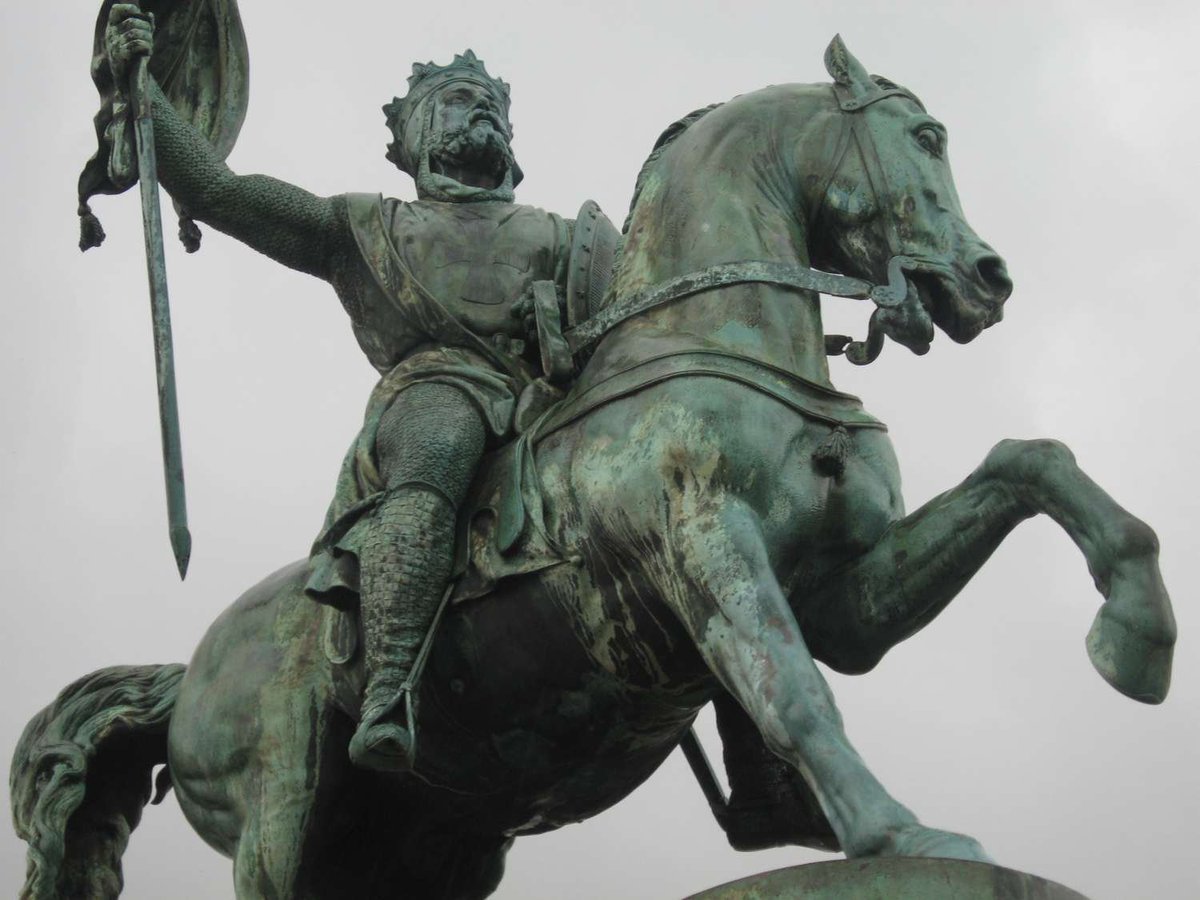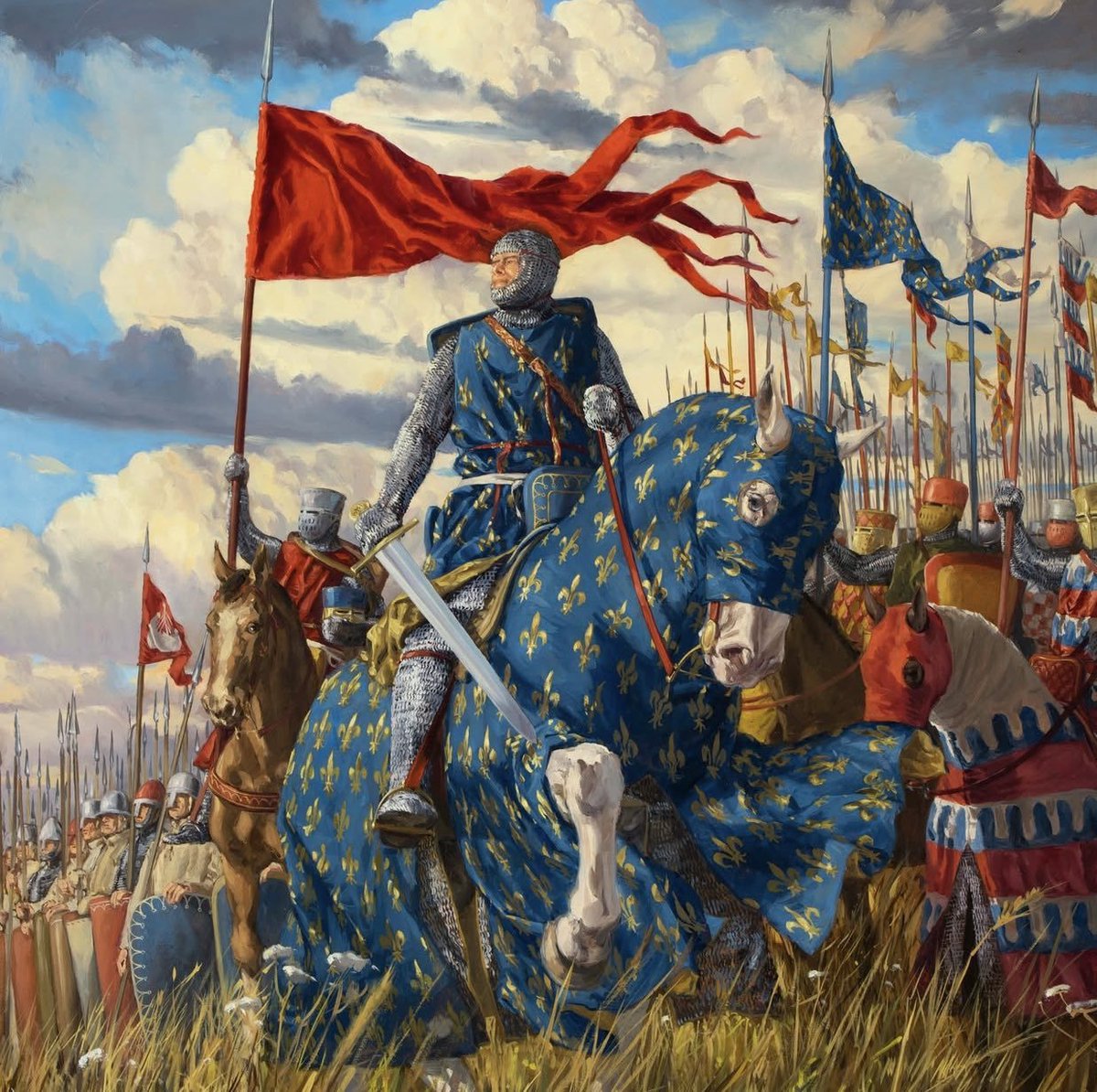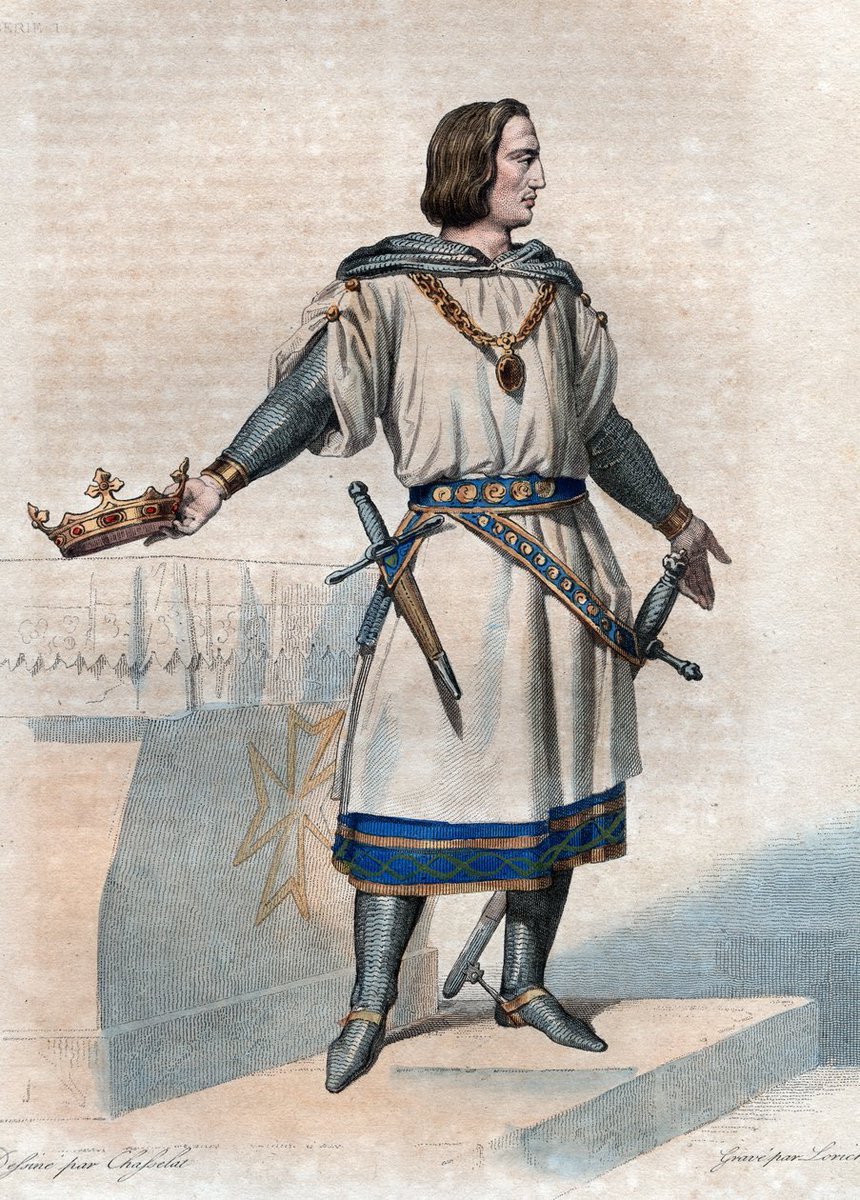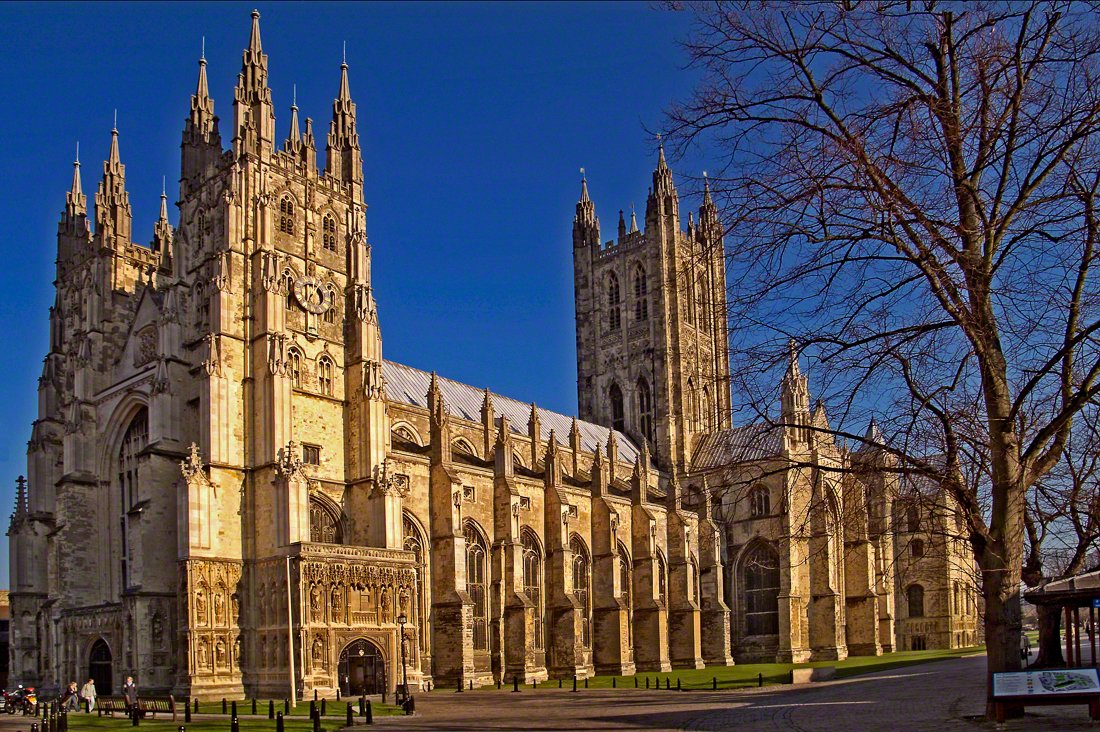King Philip II of France, also known as Philip Augustus, reigned as the monarch of France from 1180 to 1223.
He played a major role in shaping the medieval history of France and is often regarded as one of the most successful and capable kings of his time. Here is his story.🧵
He played a major role in shaping the medieval history of France and is often regarded as one of the most successful and capable kings of his time. Here is his story.🧵

King Philip was born in 1165 on the 21st of August in Gonesse, France. His father was Louis VII, King of France and his mother was Adela of Champagne.






King Louis VII would die on September 18th of the year 1180 at the age of 60 in Paris and his son Philip would succeed him. 

King Philip became king and inherited the rivalry between his father and King Henry II of England.
King Henry II territorial possessions in France, known as the Angevin Empire, consisted of Normandy, Maine, Anjou and Touraine as well as Aquitaine going to his son, Richard.
King Henry II territorial possessions in France, known as the Angevin Empire, consisted of Normandy, Maine, Anjou and Touraine as well as Aquitaine going to his son, Richard.

The lands of Brittany as well went to his other son, Geoffrey. These threatened the French domain.
As well as these lands there were disputes between the English and French over the lands of the Vexin, Berry and Auvergne.
As well as these lands there were disputes between the English and French over the lands of the Vexin, Berry and Auvergne.

Much of the rivalry between Louis VII and Henry II stemmed from the marriage between Henry and Eleonor of Aquitaine who Louis was married to.
When married to Louis, Eleonor failed to produce male heirs however when she married Henry she quickly gave birth to multiple heirs.
When married to Louis, Eleonor failed to produce male heirs however when she married Henry she quickly gave birth to multiple heirs.

When her marriage with Louis was annulled, the lands of Aquitaine passed to Henry II when they married. This would make Henry and the English crown more powerful at the time. 

Upon claiming the throne at the young age of 14, King Philip would forge alliances with King Henry's sons, most notably Richard who would later become Richard the Lionheart.
Philip wished to retake lands in France from the English and saw this as an opportunity.
Philip wished to retake lands in France from the English and saw this as an opportunity.

In 1189, King Henry's health had declined rapidly. Henry refused to name his eldest living son Richard as his heir. Richard and Philip would join forces and overrun the sick and dying Henry. 

Treaty of Azay-le-Rideau was agreed upon and signed. This would return some lands to Philip and name Richard as the heir.
Henry would die two days later at his castle of Chinon and Richard would become King of England.
Henry would die two days later at his castle of Chinon and Richard would become King of England.

Later in 1189, King Richard as well as King Philip would join forces and take up the cross to retake the Holy Land in the Third Crusade.
Philip would arrive in Acre in April of 1191, the city would fall a month after the arrival of Richard in the month of July.
Philip would arrive in Acre in April of 1191, the city would fall a month after the arrival of Richard in the month of July.

During the siege the Count of Flanders would die and King Philip would fall ill with dysentery. Citing the major issues that could happen as a result of the Count's death, Philip returned to France to settle it. 

Despite the promises he made to Richard, King Philip prepared to attack his lands in France and retake them for himself.
When informed about this Richard attempted to return home but was taken prisoner by Leopold V of Babenberg, Duke of Austria.
When informed about this Richard attempted to return home but was taken prisoner by Leopold V of Babenberg, Duke of Austria.

Philip created an alliance with Richard's brother John to overthrow Richard and place John as king. With John's support, Philip invaded the lands of Normandy in the year 1193 and laid siege to Rouen. 

King Philip and John Lackland attempted to delay King Richard's return.
They tried to bribe Henry VI, Emperor of the Holy Roman Empire to keep Richard captive longer however Henry refused and Richard was released in 1194.
They tried to bribe Henry VI, Emperor of the Holy Roman Empire to keep Richard captive longer however Henry refused and Richard was released in 1194.

When he finally returned from the Crusade, Richard proved himself too skilled a general for King Philip. Richard would swiftly regain his lands that he lost in 1193.
However in 1199, King Richard would be mortally wounded during a siege against a vassal at Châlus and would die.
However in 1199, King Richard would be mortally wounded during a siege against a vassal at Châlus and would die.

Now facing John, who was far less skilled than his late brother. John's succession to the throne would be contested by his nephew, Arthur, Duke of Brittany.
Arthur was the son of John's older brother Geoffrey and Philip who sought to defeat John, sided with Arthur.
Arthur was the son of John's older brother Geoffrey and Philip who sought to defeat John, sided with Arthur.

King Philip later demanded the presence of John in Paris however John refused to appear before the king. This resulted in Philip accepting Arthur's homage and wed him to his daughter. 
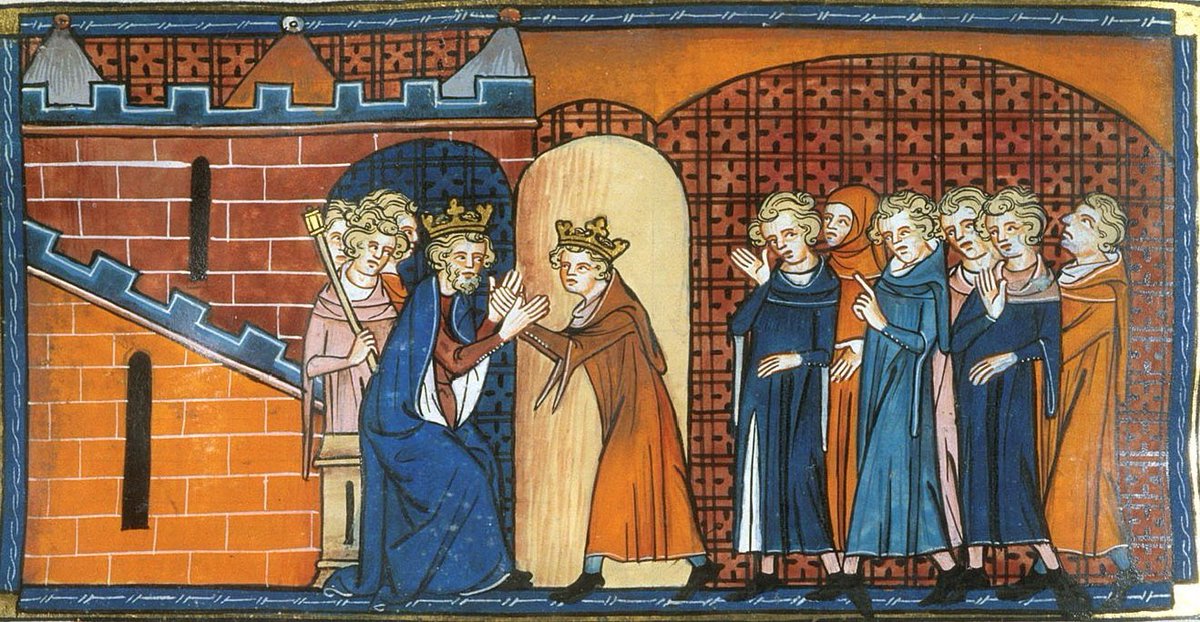
John and Arthur feuded and fought continuously over the lands of Normandy.
After John's eventual victory over the young Arthur he would imprison him in Falaise Castle which land once belonged to William the Conqueror who was born on the site.
After John's eventual victory over the young Arthur he would imprison him in Falaise Castle which land once belonged to William the Conqueror who was born on the site.

Arthur would disappear under mysterious circumstances and many believed that John had him murdered for the sake of removing a rival from the picture completely.
Philip would learn of this and begin a campaign on Normandy.
Philip would learn of this and begin a campaign on Normandy.

Within one year from then, King Philip swiftly conquered nearly ALL of John's lands in France.
Outraged by such humiliation, King John would try multiple times to retake these lands and in 1214 would make an alliance with the Holy Roman Empire.
Outraged by such humiliation, King John would try multiple times to retake these lands and in 1214 would make an alliance with the Holy Roman Empire.

Despite the alliance, King Philip destroyed his enemies at the Battle of Bouvines on July 27th 1214.
He defeated the King of England and took back his lost lands after many years. These accomplishments would earn Philip the epithet of Augustus.
He defeated the King of England and took back his lost lands after many years. These accomplishments would earn Philip the epithet of Augustus.

King Philip II of France would now be known as King Philip II Augustus, the only French king to ever possess such an esteemed title.
King Philip II Augustus died in 1223 on July 14th at the age of 57 at Mantes-la-Jolie. Remembered for his cunning, skill and luck.
King Philip II Augustus died in 1223 on July 14th at the age of 57 at Mantes-la-Jolie. Remembered for his cunning, skill and luck.

• • •
Missing some Tweet in this thread? You can try to
force a refresh





